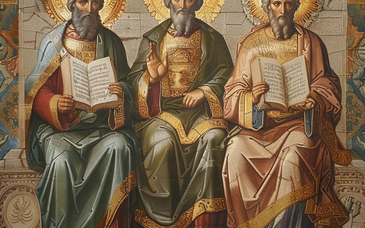In the tapestry of religious traditions, Creeds, Confessions, and Catechisms stand as pillars that articulate and define core beliefs. These doctrinal statements serve as guideposts for countless believers, offering clarity, unity, and a shared understanding of faith. In this post, we'll delve into the significance, origins, and enduring relevance of Creeds, Confessions, and Catechisms across various religious traditions.
Creeds: Unifying Statements of Faith:
Creeds are concise statements of fundamental beliefs that serve as a unifying force within religious communities. Originating in the early Christian Church, creeds such as the Nicene Creed and the Apostles' Creed succinctly articulate essential doctrines like the nature of the Trinity, the divinity of Christ, and the resurrection. Beyond Christianity, creeds are found in various forms in Judaism (e.g., the Shema) and Islam (e.g., the Shahada), providing a foundation for shared beliefs.
Confessions: Articulating Theological Convictions:
Confessions are more expansive documents that outline the theological convictions and doctrines of a particular religious tradition or denomination. In Christianity, confessions like the Westminster Confession of Faith or the Augsburg Confession serve as comprehensive statements of belief. These documents address theological nuances, ethical principles, and points of doctrine, fostering doctrinal unity within specific denominations.
Catechisms: Educational Tools for Faith Formation:
Catechisms are instructional guides designed to teach the principles of faith systematically. Rooted in the pedagogical traditions of religious education, catechisms present questions and answers that aid in the understanding of foundational beliefs. Examples include the Heidelberg Catechism in Reformed Christianity and the Baltimore Catechism in Catholicism. Catechisms are often used for instruction, ensuring that believers have a comprehensive grasp of their faith.
Enduring Relevance:
The enduring relevance of Creeds, Confessions, and Catechisms lies in their ability to provide a cohesive framework for belief and practice. These doctrinal statements serve as tools for theological clarity, fostering unity within religious communities. Additionally, they act as sources of guidance and instruction, ensuring that successive generations maintain a deep understanding of the principles that define their faith.
Across Religious Traditions:
While most commonly associated with Christianity, the concepts of Creeds, Confessions, and Catechisms extend beyond. Similar statements of belief exist in other major world religions, each serving the purpose of articulating core tenets and guiding the faithful. From the Five Pillars of Islam to the Dasa Sil Mata in Buddhism, these doctrinal expressions play vital roles in shaping religious identity and practice.
Creeds, Confessions, and Catechisms form an integral part of the fabric of religious traditions, providing believers with a clear articulation of foundational beliefs. Whether as concise creeds, comprehensive confessions, or instructional catechisms, these doctrinal statements serve as enduring guides for the faithful, fostering unity, clarity, and a deep understanding of the tenets that define their faith.
